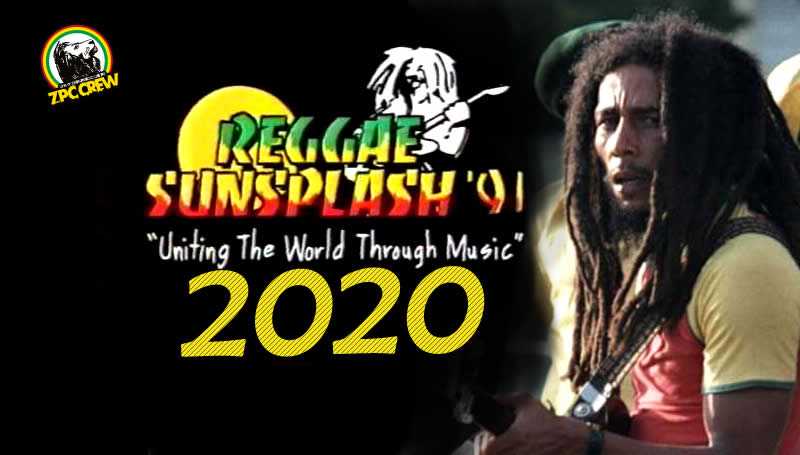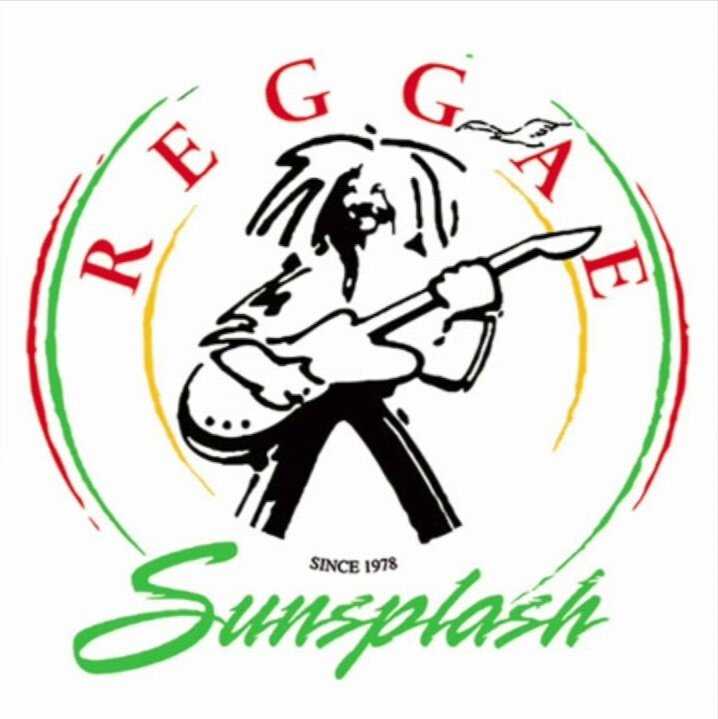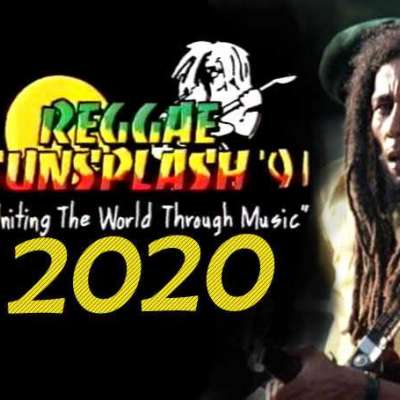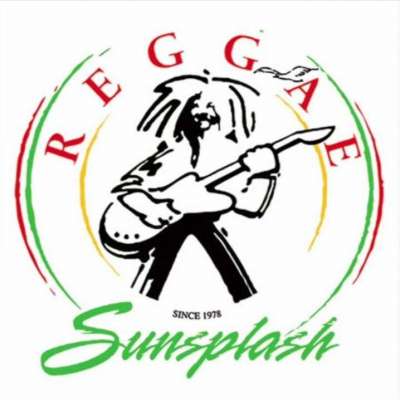Découvrir des postes
Explorez un contenu captivant et des perspectives diverses sur notre page Découvrir. Découvrez de nouvelles idées et engagez des conversations significatives
Reggae Sunsplash of Jamaica, the great music festival that set the model for reggae festivals around the world, will return in November 2020, after an absence of 14 years. Reggae Sunsplash 2020 will be held at Grizzly's Plantation Cove, Priory, St. Ann, a spacious outdoor location located near Ocho Rios on the north coast of Jamaica.
Founded by Synergy Productions, the opening of the Reggae Sunsplash took place from June 23 to 28, 1978 in the island's tourist capital, Montego Bay, and featured six evening concerts from dusk until dawn showing several of the best acts of Jamaican reggae, including Jimmy Cliff, Burning Spear, Jacob Miller and Inner Circle, Third World and Toots and the Maytals . Sunsplash was held every summer between 1978 and 1992 in Montego Bay, except in 1980, when it was held in the capital of Jamaica, Kingston, using the Jarrett Park soccer field and the Bob Marley Entertainment Center as its headquarters. The festival moved around the island between 1993 and 1996, with unique events in 1998 and 2006.

Reggae Sunsplash of Jamaica, the great music festival that set the model for reggae festivals around the world, will return in November 2020, after an absence of 14 years. Reggae Sunsplash 2020 will be held at Grizzly's Plantation Cove, Priory, St. Ann, a spacious outdoor location located near Ocho Rios on the north coast of Jamaica.
Founded by Synergy Productions, the opening of the Reggae Sunsplash took place from June 23 to 28, 1978 in the island's tourist capital, Montego Bay, and featured six evening concerts from dusk until dawn showing several of the best acts of Jamaican reggae, including Jimmy Cliff, Burning Spear, Jacob Miller and Inner Circle, Third World and Toots and the Maytals . Sunsplash was held every summer between 1978 and 1992 in Montego Bay, except in 1980, when it was held in the capital of Jamaica, Kingston, using the Jarrett Park soccer field and the Bob Marley Entertainment Center as its headquarters. The festival moved around the island between 1993 and 1996, with unique events in 1998 and 2006.

Reggae Sunsplash of Jamaica, the great music festival that set the model for reggae festivals around the world, will return in November 2020, after an absence of 14 years. Reggae Sunsplash 2020 will be held at Grizzly's Plantation Cove, Priory, St. Ann, a spacious outdoor location located near Ocho Rios on the north coast of Jamaica.
Founded by Synergy Productions, the opening of the Reggae Sunsplash took place from June 23 to 28, 1978 in the island's tourist capital, Montego Bay, and featured six evening concerts from dusk until dawn showing several of the best acts of Jamaican reggae, including Jimmy Cliff, Burning Spear, Jacob Miller and Inner Circle, Third World and Toots and the Maytals . Sunsplash was held every summer between 1978 and 1992 in Montego Bay, except in 1980, when it was held in the capital of Jamaica, Kingston, using the Jarrett Park soccer field and the Bob Marley Entertainment Center as its headquarters. The festival moved around the island between 1993 and 1996, with unique events in 1998 and 2006.


General Levy - Exclusive Interview at #youtube
General Levy is an English ragga deejay, regularly employed on studio tracks by drum and bass DJs. He is best known for the track "Incredible" which he recorded with M-Beat. A remixed version of this reached number 8 in the UK Singles Chart in 1994.
General Levy's first major releases were with the independent record label, Fashion Records, who signed a distribution deal with London Records for the re-releases of the tracks he had recorded. He had earlier releases with the record producers Lloydy Crucial and Robbo Ranx (later of BBC 1xtra), but these were mainly tracks that were hits on the underground dancehall scene. General Levy was ostracized by the UK jungle scene in 1994, due to comments he made relating to his collaboration with M-Beat on "Incredible".
Levy featured on many sound systems in the late 1980s and early 1990s, such as Java One love and Tippertone Sound.
https://youtu.be/Fy3Zhvp4Iu8
Official Reggae History: Morna Dodd Coxsone Exclusive Interview UNCUT Live & Direct at YouTube
Morna Dodd Coxsone shares some memories of her father's [Clement Seymour Dodd] Legacy Studio One.
❤️??
Uk's Leading Broadcast Station For Reggae & Sound System Culture Artists, Sound Systems, Preserving & Documenting Reggae
SoundSystems Culture For more Quality Vibes Subscribe
to our YouTube Channel.
#official #reggae #history
https://youtu.be/XxYZA1LLxpI
Luciano The Messenjah Exclusive Interview at StingRay Records 2016
Born in Davey Town, Manchester Parish, and raised as the seventh of nine children in a strict Adventist family, Luciano began recording in 1992, with his first single "Ebony & Ivory" (on which he was credited as 'Stepper John' on the Aquarius Record label, followed by a split album with DJ Presley (now credited as 'Luciana' for producer Sky High. His first releases as Luciano included the hit single "Give My Love a Try", produced at Castro Brown's New Name Studio, followed by others produced by Brown, Freddie McGregor, Blacka Dread, and Sly and Robbie, including the 1993 no. 1 UK reggae hit "Shake It Up Tonight".
Luciano performing at the 2016 Palm Beach Jerk and Caribbean Culture Festival. West Palm Beach, Florida.
He started working with Philip "Fatis" Burrell, releasing the singles "Chant Out" and "Poor and Simple", with the album Moving Up following in late 1993. In 1994 he cut singles for Musclehead and Louie Culture before returning to work with Burrell for a series of successful singles and the album One Way Ticket, which saw Luicano at the forefront of the "Rasta Renaissance" in dancehall music. The renewal of Rastafarian influence into dancehall music in the early 1990s had begun with artists such as Tony Rebel and Garnett Silk. After Silk's death in late 1994, many looked to Luciano to continue consciousness in reggae music. Of Garnett Silk, he stated "Garnett was more like a brother, a father, a tutor, a forerunner. When he moved on I knew the work for me became harder still."
The following year brought the smash hit album Where There Is Life for Chris Blackwell's label Island Jamaica. It contained such hits as "It's Me Again Jah" (a no. 1 single in Jamaica), "Who Could It Be", as well as the title track. He recorded a second album for Island Jamaica in 1997 entitled The Messenger (largely compiled from his hit singles), whose title track earned him his enduring nickname.
The majority of his recording in the mid-to-late 1990s was for Burrell and the Xterminator label, which by that time included such artists as Sizzla, Mikey General and Firehouse Crew, as well as recordings from Capleton and Cocoa Tea. Along with the work on the two albums for Island Jamaica, the majority of Luciano hits produced by Burrell were featured on 1999's Sweep Over My Soul. Burrell and Luciano parted ways in 1999.
By 2001, Luciano had released two live albums as well as two compilation albums alongside Sizzla and Anthony B after the split with Xterminator. That year saw the release of two new albums of material, Great Controversy on Jet Star and A New Day on VP Records. The latter received a nomination for Best Reggae Album at the 2002 Grammy Awards, and was executive produced by longtime saxophonist and touring partner Dean Fraser. The album received additional production from Sly & Robbie and was backed by Fraser and the Firehouse Crew.
Fraser continued to produce many of Luciano's albums throughout the decade, including 2008's Jah Is My Navigator. In 2010, he released United States of Africa. While the previous album had focused mostly on God, Africa dealt with global events. Of this, Luciano stated, "We're not just singing about Zion and all those glorious dreams. We're also dealing with issues that affect the people, their very minds."
He was awarded the Order of Distinction in the rank of Officer on 15 October 2007, in recognition of his contribution to reggae music.
In July 2009, Luciano paid his respects to fellow musician Michael Jackson by releasing a reggae tribute (on Lioni Records) of Jackson's iconic USA for Africa charity song, "We are the World".
His album, Zion Awake was nominated for a Grammy Award for Best Reggae Album in 2016.
#preserving & #documenting #reggae
#soundsystems #culture
https://youtu.be/3TGYZe26QWo
B. John McMorris, c.1970, Kingston, Jamaica, West Indies. McMorris first recorded with Captain Sinbad for the Youth In Progress label at the tender age of nine, where his piping interjections contrasted neatly with Sinbad’s gruff style, and throughout the 80s he was seldom out of the reggae charts. Claimed by many to be the first dancehall singer, his ability to fit lyrics over any rhythm or backing track became something of a legend in a business that has scant regard for second takes and ‘dropping in’. Little John did it every time - and he rode on the crest of the 80s’ dancehall music explosion, becoming a superstar by the age of 17. He began his career on Romantic Hi Fi, moving up through Killimanjaro, Gemini and Volcano Hi Power, where he honed and perfected his craft with a lengthy string of live appearances. Simultaneously, he was recording for virtually every producer in Jamaica, notably Henry ‘Junjo’ Lawes, Joseph ‘Joe Joe’ Hookim, George Phang, Jah Thomas and Jammys, and he has released countless records on a bewildering string of labels. He no longer records as extensively as he once did, and limits his live appearances to a minimum. Hits for Exterminator proved that he was not relying on his past glories, and his talent, warm personality and skill as a raconteur remained.
#preserving & #documenting #reggae
#soundsystems #culture
For more #quality Vibes #subscribe
to our YouTube Channel..
https://youtu.be/QIL9zjKyMiU
Freddie McGregor - Exclusive Interview at StingRay Records
Freddie McGregor is one of reggae's most durable and soulful singers, with an incredibly steady career that started all the way back in the '60s, when he was just seven years old. Since then, he's spanned nearly every stylistic shift in Jamaican music, from ska and rocksteady to Rastafarian roots reggae to lovers rock (his particular specialty) to dabblings in dancehall, ragga, and dub. Not just a singer, he wrote some of his own material, and grew into an accomplished producer as well. McGregor's heyday was the early '80s, when he released several high-quality albums and reached the peak of his popularity in Jamaica and England. However, he remained a strong presence on the reggae scene well into the new millennium.
McGregor was born in Clarendon, Jamaica on June 27, 1956. At age seven, he started singing backup for a local ska harmony duo called the Clarendonians (naturally, with the nickname of Little Freddie McGregor). The Clarendonians recorded for producer Clement "Coxsone" Dodd's legendary Studio One label for a time, and when they split in the mid-'60s, McGregor teamed up with ex-member Ernest "Fitzroy" Wilson to form a new duo, Freddie and Fitzroy. They recorded several single sides, including "Why Did You Do It" and "Do Good and Good Will Follow You." McGregor stayed at Studio One for much of the '70s, working as a session drummer and backup singer while developing his own vocal style, which owed much to smooth, Philadelphia-style soul. He sang lead for groups like Generation Gap and Soul Syndicate, and also recorded off and on as a solo act during the '70s, though always in the singles medium. During this period, he began writing some of his own material, including songs like "Go Away Pretty Woman," "Tomorrow Is Like Today," and "What Difference Does It Make."
In 1975, McGregor converted to Rastafarianism, which had a profound impact on his music. Still with Studio One and working with Earl "Chinna" Smith, he recorded the classics "Rastaman Camp" and "I Am a Rasta" right off the bat, and followed them with a string of singles that substantially raised his profile in Jamaica: "Mark of the Beast," "Sergeant Brown," "Jogging," "Natural Collie," "Zion Chant," "Walls of Jericho," "Africa Here I Come," "Come Now Sister," and "Bobby Bobylon" among them. He issued his first album, Mr. McGregor, in 1977, under the auspices of producer Niney the Observer. Returning to Studio One, he offered his first LP for the label in 1980 with the classic Bobby Bobylon, which featured a mixture of new material and reworkings of older singles. The album was a smash hit in Jamaica, establishing McGregor as a budding star, and revitalizing Coxsone Dodd's production career. Around the same time, he started producing and arranging for other artists, most notably on Judy Mowatt's solo debut, Black Woman; he also worked with Johnny Osbourne and Jennifer Lara.
In 1981, McGregor scored a huge hit single with "Big Ship," which catapulted him to the front rank of reggae stars in the immediate post-Marley era, along with Dennis Brown and Gregory Isaacs. His next LP arrived in 1982, also titled Big Ship, and featured production by Linval Thompson and musical backing by the Roots Radics. It too was highly successful, both creatively and commercially. Signing with Ras for 1983's Come On Over, McGregor extended his creative hot streak to an international audience, making a name for himself in the U.K. and U.S. His 1984 follow-up Across the Border was a slightly poppier effort that contained his hit reggae cover of "Guantanamera." Continuing in this crossover vein, in hopes of surviving amid the dancehall revolution, McGregor released All in the Same Boat in 1986; it produced a major hit in "Push Come to Shove," which became his first U.K. chart entry. He sparked the interest of Polydor Records, and found further U.K. success with "That Girl" and a cover of the Main Ingredient "Just Don't Want to Be Lonely," which made the U.K. Top Ten in 1987.
#preserving & #documenting #reggae
#soundsystems #culture
For more #quality Vibes #subscribe
to our YouTube Channel..
https://youtu.be/V8TJYVJRZ_Y
Tippa Irie Exclusive Interview @ YouTube Studios
Talks on where he is from and how he got into music also reggae culture, Sound System culture and what he doing now.
Big respect to Anthony Henry - a.k.a. "Tippa Irie"
and full crew who supported this show could not of done it without ya nuff blessings
Anthony Henry - a.k.a. "Tippa Irie" - emerged from England's Saxon Sound International - the star-studded travelling sound system that has been at the forefront of the U.K. reggae dancehall scene for the past 25 years and helped launch the careers of artists such as Maxi Priest, Papa Levi and Smiley Culture.
Tippa Irie was part of the new generation of British MC's who developed the 'Fast Talking' style chat which today can be heard in modern day rappers like Busta Rhymes.
https://youtu.be/dmHGv_jDeFY







